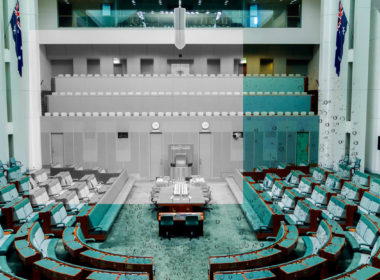- This article was the winner of the inaugural NSW Young Lawyers International Law Essay Competition. The competition aims to foster academic legal writing and research in international law. The competition was open to early career lawyers within their first five years of practice and law students.
- Entrants were required to submit a 1,000-word essay on one of three topics relevant to contemporary international law.
- To keep up to date with NSW Young Lawyers including upcoming meetings and events, see the NSW Young Lawyers website.
This article explores whether the advisory jurisdiction of the International Court of Justice (‘ICJ’) is effective in dealing with international disputes. It examines the advisory opinion in the Legal Consequences of the Separation of the Chagos Archipelago from Mauritius in 1965 (‘Chagos Advisory Opinion’),1 and considers the opinion’s ability to address legal issues in the dispute between Mauritius and the United Kingdom (‘UK’). The article argues that although advisory opinions are non-binding in nature, they can and have played an important role in the process of settling disputes.
The advisory jurisdiction of the ICJ
The ICJ’s advisory opinions are ‘judicial statements on legal questions submitted to the Court by organs of the United Nations and other legal bodies so authorized’,2 and made pursuant to Article 96 of the United Nations (‘UN’) Charter and Articles 65 to 68 of the ICJ Statute.
Unlike judicial decisions in contentious cases where the consent of State parties to the dispute forms the basis of the ICJ’s jurisdiction, advisory opinions do not require the consent of any State. Thus, advisory opinions do not constitute a decision within the meaning of Article 94 of the UN Charter or Article 59 of the ICJ Statute.
Advisory opinions may examine legal questions in disputes between States, but they ultimately have no binding force.3 This means that the requesting organ and States affected by any determinations are not obliged to comply with the opinion. Advisory opinions offer legal advice to organs and institutions requesting the opinion, but are not intended to directly settle disputes between States.4 Consequently, scholars criticise the ICJ’s advisory jurisdiction for being limited in its ability to resolve disputes because it is up to the State parties to decide whether or not to follow any determination of an opinion.5
While there have been occasions where States have engaged positively with determinations in the ICJ’s advisory opinions,6 such opinions have also commonly been met with resistance. For example, the UK rejected the legal consequences in the Legal Consequences for States of the Continued Presence of South Africa in Namibia opinion while acknowledging the importance of institutions like the ICJ.7 The UK similarly resisted the advisory opinion in Legality of the Threat or Use of Nuclear Weapons by voting against the UN General Assembly resolution that endorsed the opinion,8 as with the more recent Chagos Advisory Opinion.
The Chagos Advisory Opinion
In 1965, the UK entered into an agreement with Mauritius to administratively detach the Chagos Archipelago from Mauritius, alongside negotiations relating to Mauritian independence. The UK declared the Chagos Archipelago a new British Indian Ocean Territory (‘BIOT’) for the purposes of leasing its largest island to the United States for building a military base.9 Subsequently, inhabitants of the Chagos Archipelago were deported and prevented from returning.10
In response to the long-standing dispute between the UK and Mauritius over sovereignty of the Chagos Archipelago, the UN General Assembly adopted Resolution 71/292 in June 2017, requesting an advisory opinion from the ICJ on whether the process of decolonisation of Mauritius had been lawfully completed and the legal consequences of the UK’s continued administration of the Chagos Archipelago.11 The ICJ’s advisory opinion stated that the process of decolonisation was not lawfully completed after Mauritian independence in 1968, the UK’s continued administration of the Chagos Archipelago constitutes a wrongful act, and the UK has an obligation to end its administration as rapidly as possible.12
Unlike judicial decisions in contentious cases where the consent of State parties to the dispute form the basis of the ICJ’s jurisdiction, advisory opinions do not require consent of any State.
Treatment of the Chagos Advisory Opinion
In May 2019, the UN General Assembly adopted Resolution 73/295 which endorsed the Chagos Advisory Opinion and demanded the UK withdraw its colonial administration of the Chagos Archipelago unconditionally within six months.13 The UK voted against this resolution, rejecting the advisory opinion as non-binding and let the six-month period pass with no action or engagement with Mauritius relating to the Chagos Archipelago. Although the Chagos Advisory Opinion did not result in any immediate action from the UK to resolve the conflict with Mauritius, the opinion’s influence and effect can be seen in other ways.
In September 2019, Mauritius and the Maldives submitted a dispute to the International Tribunal for the Law of the Sea (‘ITLOS’) on the delimitation of maritime boundaries following the Chagos Advisory Opinion.14 In its judgment, a Special Chamber of ITLOS held that Mauritian sovereignty over the Chagos Archipelago could be inferred from the ICJ’s determinations in the Chagos Advisory Opinion. The Special Chamber concluded that while the opinion is legally non-binding, it has legal effect and holds no less authority than judicial decisions.15 Although the Special Chamber was not under any requirement to follow opinions of the ICJ, the Chamber’s ruling suggests a special authoritative character of ICJ Advisory Opinions.
In February 2020, following the adoption of Resolution 73/295, the UN World Maps published a new map including the Chagos Archipelago in the territory of the Republic of Mauritius. In August 2021, the Universal Postal Union also adopted measures requiring that any documentation or stamps not refer to the Chagos Archipelago as being a part of the UK.16
The influence of ICJ advisory opinions
Although the Chagos Advisory Opinion is legally non-binding and no party or State is required to follow its determinations, the Opinion’s influence can nevertheless be seen in the support for Resolution 73/295, the ITLOS judgment of 2019 and subsequent actions of other international institutions. The Advisory Opinion has also shaped discussions of legal issues relating to the dispute between the UK and Mauritius and has resulted in significant international pressure on the UK to address the dispute over sovereignty of the Chagos Archipelago.
While there are no formal mechanisms for enforcing opinions of the ICJ, international pressure may have a stronger influence on States otherwise seeking to rely on the international legal framework and its institutions. In November 2022, the UK agreed to open negotiations with Mauritius about the future of the Chagos Archipelago and the return of former inhabitants to the island.17 International pressure may continue to influence the UK’s stance in its dispute with Mauritius given it has generally shown strong support for the ICJ as a principal judicial organ of the UN.
ICJ advisory opinions also appear to be widely accepted by scholars in the interpretation of the international legal framework. The ICJ itself does not differentiate in the way it refers to its judicial decisions and advisory opinions in supporting legal propositions.18 Other courts, such as the Court of Justice of the European Union,19 appear to similarly rely on ICJ advisory opinions in their own decisions.
#The views expressed are the author’s own and the work was prepared in her personal capacity.

Tanya Ma is a lawyer at the Commonwealth Attorney-General’s department. Tanya holds a Bachelor of Arts and a Bachelor of Laws (Honours) from the Australian National University. She is admitted as a lawyer in the Supreme Court of the Australian Capital Territory and the High Court of Australia.
[1] Legal Consequences of the Separation of the Chagos Archipelago from Mauritius in 1965 (Advisory Opinion) [2019] ICJ Rep 95 (‘Chagos Advisory Opinion’).[2] Karin Oellers-Frahm, ‘Article 96’ in Simma et al (eds), The Charter of the United Nations: A Commentary (Oxford University Press, 2012) 1976.[3] Interpretation of Peace Treaties with Bulgaria, Hungary and Romania (Advisory Opinion) (First Phase) [1950] ICJ Rep 65, 71.[4] Legality of the Threat or Use of Nuclear Weapons (Advisory Opinion) [1996] ICJ Rep 226, 236.[5] See, eg, Yuan Zhuang, ‘On the Effectiveness of ICJ’s Advisory Opinions in the Settlement of International Disputes: From the Perspective of the Mauritius/Maldives Case’ (2022) 4 China Oceans Law Review 155.[6] For example, Malaysia responded by dropping the domestic lawsuits against Dato’ Param Cumaraswamy following the handing down of the advisory opinion in Difference Relating to Immunity from Legal Process of a Special Rapporteur of the Commission on Human Rights (Advisory Opinion) [1999] ICJ Rep 62.[7] Legal Consequences for States of the Continued Presence of South Africa in Namibia (South West Africa) notwithstanding Security Council Resolution 276 (1970) (Advisory Opinion) [1971] ICJ Rep 16. For UK’s position in response to the advisory opinion, see United Kingdom, Parliamentary Debates, House of Commons, 19 October 1971, vol 823, col 681 (Anthony Kershaw).[8] Legality of the Threat or Use of Nuclear Weapons (Advisory Opinion) [1996] ICJ Rep 226. For the UN General Assembly resolution, see Advisory Opinion of the International Court of Justice on the Legality of the Threat or Use of Nuclear Weapons, GA Res 51/45 M, UN GAOR, 51st sess, 79th plen mtg, Agenda Item 71, Supp No 49, UN Doc A/RES/51/45 (10 January 1997, adopted 10 December 1996).[9] Craig Gaver, ‘Dispute Concerning Delimitation of the Maritime Boundary Between Mauritius and Maldives in the Indian Ocean (Mauritius/Maldives). Case No. 28.’ (2021) 115(3) American Journal of International Law 519, 520.[10] Ibid.[11] Request for an Advisory Opinion of the International Court of Justice on the Legal Consequences of the Separation of the Chagos Archipelago from Mauritius in 1965, GA Res 71/292, UN GAOR, 71st sess, 88th plen mtg, Agenda Item 87, Supp No 49, UN Doc A/RES/71/292 (22 June 2017).[12] Chagos Advisory Opinion (n 1) 138-140.[13] Advisory Opinion of the International Court of Justice on the Legal Consequences of the Separation of the Chagos Archipelago from Mauritius in 1965, GA Res 73/295, 73rd sess, 83rd plen mtg, Agenda Item 88, Supp No 49, UN Doc A/RES/73/295 (24 May 2019).[14] Delimitation of the Maritime Boundary between Mauritius and Maldives in the Indian Ocean (Mauritius v Maldives) (Special Agreement and Notification) (International Tribunal for the Law of the Sea, Case No 28, 24 September 2019).[15]Delimitation of the Maritime Boundary between Mauritius and Maldives in the Indian Ocean (Mauritius/Maldives) (Preliminary Objections) (International Tribunal for the Law of the Sea, Case No 28, 28 January 2021) 72-73.[16] Implementation of United Nations General Assembly resolution 73/295 on the advisory opinion of the international Court of Justice on the legal consequences of the separation of the Chagos Archipelago from Mauritius in 1965, Universal Postal Union Resolution C15/2021, Proposal 11, 3rd plen mtg (24 August 2021).[17] Patrick Wintour, ‘UK agrees to negotiate with Mauritius over handover of Chagos Islands’, The Guardian (online, 4 November 2022) <https://www.theguardian.com/world/2022/nov/03/uk-agrees-to-negotiate-with-mauritius-over-handover-of-chagos-islands>.[18] Dharma Pratap, The Advisory Jurisdiction of the International Court (Clarendon Press, 1972) 231.[19] Fabian Simon Eichberger, ‘The Legal Effect of ICJ Advisory Opinions Redefined? The Mauritius/Maldives Delimitation Case — Judgment On Preliminary Objections’ (2021) 22(2) Melbourne Journal of International Law 1, 17. |




